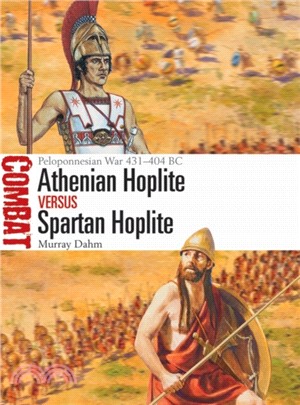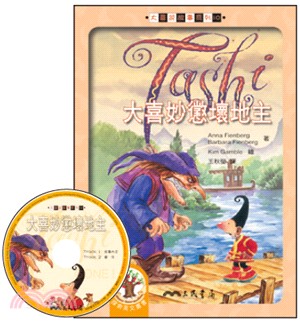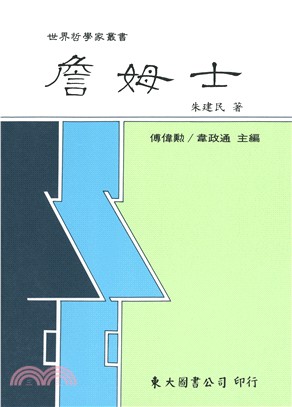Athenian Hoplite vs Spartan Hoplite
商品資訊
相關商品
商品簡介
商品簡介
The Peloponnesian War (431–404 BC), waged between Athens and Sparta and their respective allies, involved some of the most important developments in ancient warfare. A life-and-death struggle between the two most powerful Greek city-states in the wake of their combined successes against the Persian invasion of Xerxes in 480–479 BC, the conflict dragged in communities from all over the Greek world on one side or the other. Ranging from the Black Sea to Sicily, the war saw the first recorded widespread use of light-armed troops, reserves, the deep phalanx and other ideas important for the development of Western warfare into the 4th century BC, such as strategic thinking. It also revealed lessons (some learned and some not) with respect to the strengths and weaknesses of hoplite warfare and the various states in Greece. This study of three pivotal clashes between Spartan and Athenian hoplite forces during the Peloponnesian War highlights all of these developments and lessons.
Sparta was the natural leader of Greece and widely recognized as having the best hoplite army. Since the 7th century, Sparta’s political system had prioritized the production of professional hoplites. The entire male citizen population between the ages of 20 and 59 – the homoioi or Spartiates – were full-time soldiers, training, messing and living together. All other aspects of Spartan society were designed to facilitate this arrangement, the most remarkable being the system of helots, state-owned slaves who farmed the land and provided all the services Sparta needed. In the aftermath of the Persian Wars Sparta retained its reputation as the pre-eminent hoplite state. At the same time, Sparta was a highly conservative society and its leaders did not want to take on a foreign empire in the wake of Persia’s defeat. Instead, the Spartans withdrew into the Peloponnese and looked to local affairs.
The Athenians, by contrast, were more than happy to take on the leadership role left vacant by Sparta. Taking the lead in the Delian League, a voluntary alliance of Greek city and island states determined to ensure that the Aegean remained free of Persian influence, Athens then set about turning the League into a naval empire of its own, and imposed democracy on member states/subjects. This rapid rise in Athens’ power alarmed other Greeks, who feared being absorbed into the Athenian empire. Confident, opportunistic and expansive, Athens was also unusual in ancient Greece because of the size of its territory, Attica. Despite Athens’ manpower, its hoplites were essentially part-time soldiers, lacking the concentrated training and discipline of the Spartans. The tactics and drill of both armies were much the same but the Spartans were more expert at them, performing complex manoeuvres easily and quickly.
Athens’ rise to power split the Greek world between those states which sided with (or were subjugated by) Athens and those who sided with Sparta. When Spartan armies invaded Attica, the entire Athenian population withdrew within its long walls, intending to rely on the Athenian navy to supply them while they waited out the Spartan invasions and avoided conflict with the most feared hoplite army in Greece. Athens also planned to launch naval raids against the Peloponnese to keep the Spartans wary and the invasions short. After plague broke out among the Athenians in 430 and 429, Athens’ politics descended into infighting between those who wanted to continue the defensive policy and more belligerent demagogue politicians who wanted to face Spartan forces on land.
This change in Athenian policy altered the direction of the war, but had varying results. In 425 Athenian forces were unexpectedly able to trap and defeat a force of Spartan and Peloponnesian troops on the island of Sphacteria, making decisive use of light-armed troops to get behind the Spartan position; 120 Spartiates were captured and Sparta sued for peace. Rejecting Sparta’s peace overtures, the Athenians immediately squandered any advantage in 424 by going to war with Sparta’s ally, Thebes; the Spartans captured the Athenian colony of Amphipolis and an Athenian hoplite expedition to free the city in 422 ended in a decisive Spartan victory. Peace was agreed in 421, but Athens chose to side with Sparta’s traditional enemy, Argos, and suffered defeat at the hands of Spartan forces at the battle of Mantinea in 418. Worse was to follow for Athens; the disastrous (and unnecessary) Sicilian Expedition of 415–413 was followed by naval defeats which sealed Athens’ fate.
Sparta was the natural leader of Greece and widely recognized as having the best hoplite army. Since the 7th century, Sparta’s political system had prioritized the production of professional hoplites. The entire male citizen population between the ages of 20 and 59 – the homoioi or Spartiates – were full-time soldiers, training, messing and living together. All other aspects of Spartan society were designed to facilitate this arrangement, the most remarkable being the system of helots, state-owned slaves who farmed the land and provided all the services Sparta needed. In the aftermath of the Persian Wars Sparta retained its reputation as the pre-eminent hoplite state. At the same time, Sparta was a highly conservative society and its leaders did not want to take on a foreign empire in the wake of Persia’s defeat. Instead, the Spartans withdrew into the Peloponnese and looked to local affairs.
The Athenians, by contrast, were more than happy to take on the leadership role left vacant by Sparta. Taking the lead in the Delian League, a voluntary alliance of Greek city and island states determined to ensure that the Aegean remained free of Persian influence, Athens then set about turning the League into a naval empire of its own, and imposed democracy on member states/subjects. This rapid rise in Athens’ power alarmed other Greeks, who feared being absorbed into the Athenian empire. Confident, opportunistic and expansive, Athens was also unusual in ancient Greece because of the size of its territory, Attica. Despite Athens’ manpower, its hoplites were essentially part-time soldiers, lacking the concentrated training and discipline of the Spartans. The tactics and drill of both armies were much the same but the Spartans were more expert at them, performing complex manoeuvres easily and quickly.
Athens’ rise to power split the Greek world between those states which sided with (or were subjugated by) Athens and those who sided with Sparta. When Spartan armies invaded Attica, the entire Athenian population withdrew within its long walls, intending to rely on the Athenian navy to supply them while they waited out the Spartan invasions and avoided conflict with the most feared hoplite army in Greece. Athens also planned to launch naval raids against the Peloponnese to keep the Spartans wary and the invasions short. After plague broke out among the Athenians in 430 and 429, Athens’ politics descended into infighting between those who wanted to continue the defensive policy and more belligerent demagogue politicians who wanted to face Spartan forces on land.
This change in Athenian policy altered the direction of the war, but had varying results. In 425 Athenian forces were unexpectedly able to trap and defeat a force of Spartan and Peloponnesian troops on the island of Sphacteria, making decisive use of light-armed troops to get behind the Spartan position; 120 Spartiates were captured and Sparta sued for peace. Rejecting Sparta’s peace overtures, the Athenians immediately squandered any advantage in 424 by going to war with Sparta’s ally, Thebes; the Spartans captured the Athenian colony of Amphipolis and an Athenian hoplite expedition to free the city in 422 ended in a decisive Spartan victory. Peace was agreed in 421, but Athens chose to side with Sparta’s traditional enemy, Argos, and suffered defeat at the hands of Spartan forces at the battle of Mantinea in 418. Worse was to follow for Athens; the disastrous (and unnecessary) Sicilian Expedition of 415–413 was followed by naval defeats which sealed Athens’ fate.
主題書展
更多
主題書展
更多書展本週66折
您曾經瀏覽過的商品
購物須知
外文書商品之書封,為出版社提供之樣本。實際出貨商品,以出版社所提供之現有版本為主。部份書籍,因出版社供應狀況特殊,匯率將依實際狀況做調整。
無庫存之商品,在您完成訂單程序之後,將以空運的方式為你下單調貨。為了縮短等待的時間,建議您將外文書與其他商品分開下單,以獲得最快的取貨速度,平均調貨時間為1~2個月。
為了保護您的權益,「三民網路書店」提供會員七日商品鑑賞期(收到商品為起始日)。
若要辦理退貨,請在商品鑑賞期內寄回,且商品必須是全新狀態與完整包裝(商品、附件、發票、隨貨贈品等)否則恕不接受退貨。
























